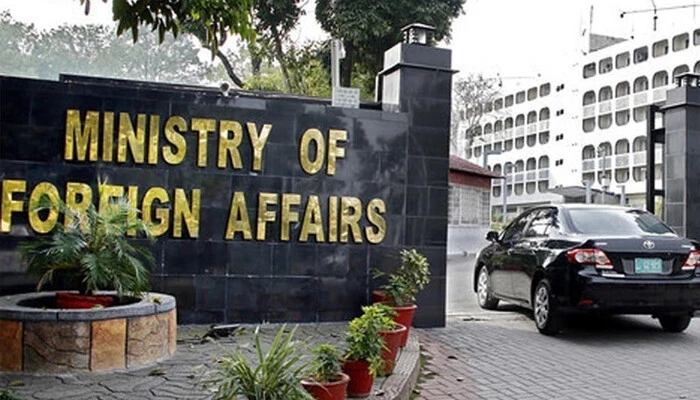Pakistan has strongly condemned recent remarks by Indian leaders, including Prime Minister Narendra Modi’s speech in Bihar, calling them reflective of a troubling mindset that promotes aggression over peace. The Foreign Office issued a firm statement warning that such rhetoric poses a threat to regional stability.
Troubling Mindset and Misdirected Blame
Foreign Office spokesperson Shafqat Ali Khan said Indian leaders are prioritising hostility over dialogue. He described the remarks made in Bihar as deeply concerning. Khan stated that portraying Pakistan as the source of regional instability is divorced from reality.
He noted that the international community is aware of India’s history of aggressive actions, including documented support for terrorism inside Pakistan. He stressed that these facts cannot be hidden by hollow narratives or political diversions.
Khan warned that this pattern of inflammatory speech reflects a broader policy of confrontation and denial, which harms the prospects for peace in South Asia.
Modi’s Speech and India’s Stance on Kashmir
Speaking at a rally in Bihar, Indian Prime Minister Narendra Modi referenced Operation Sindoor. He said it was only one arrow in India’s quiver and claimed the war on terror is not over. His comments were widely viewed as a direct threat to Pakistan.
Following Modi’s remarks, Indian Ministry of External Affairs spokesperson Randhir Jaiswal echoed the prime minister’s stance. He accused Pakistan of supporting terrorism and rejected any possibility of peace talks.
Jaiswal made it clear that India would not hold negotiations over Kashmir. He said that any discussion on the issue would only focus on Pakistan vacating the disputed territory.
Pakistan, however, maintains that the Kashmir conflict is the central issue undermining peace in the region. Shafqat Ali Khan reiterated that Pakistan supports a just and lasting solution based on United Nations Security Council resolutions and the wishes of the Kashmiri people.
He warned that ignoring this issue would only fuel mistrust and future conflict between the two nuclear-armed neighbours.
Military Clashes and the Call for Peace
The spokesperson also referenced the recent military clashes between the two countries. From May 6 to 10, forces from Pakistan and India exchanged fire. The confrontation followed an April 22 attack in Indian-administered Kashmir’s Pahalgam, where 26 civilians were killed. India accused Pakistan of orchestrating the attack, a claim strongly denied by Islamabad.
Khan said the events of recent weeks show the futility of threats and coercion. He stated that India cannot and will not succeed in achieving its goals through misrepresentation and aggression.
Pakistan remains committed to peace and constructive dialogue. However, it is equally prepared to defend its sovereignty and territorial integrity. The spokesperson stressed that lasting peace in South Asia requires maturity, restraint, and a willingness to address root causes of conflict.
He concluded by urging India to abandon its confrontational approach and return to the path of dialogue, warning that further escalation would only bring more suffering to the region.
